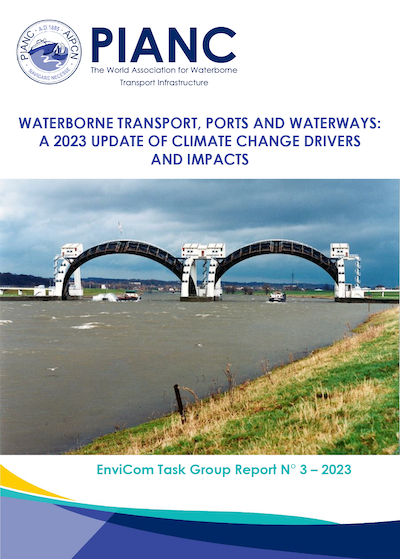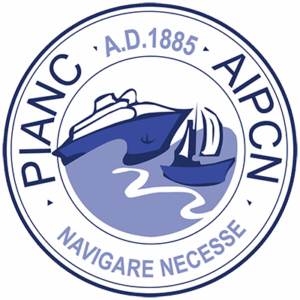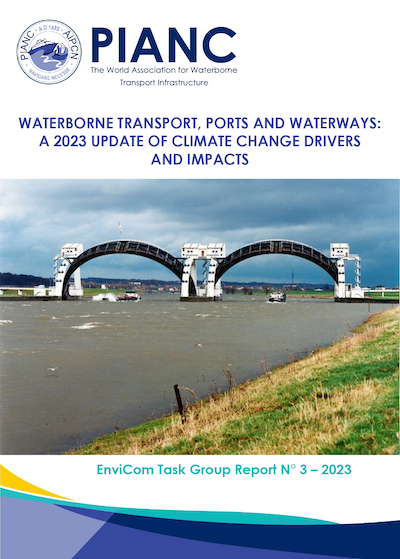PIANC International has released a 2023 Update of Climate Change Drivers and Impacts for Waterborne Transport, Ports and Waterways, prepared by members of PIANC’s Permanent Task Group on Climate Change (PTGCC).
This Environmental Commission publication is free for both PIANC members and non-members.
The Update of the original PIANC TG3 (2008) report, is based on the internationally agreed assumptions and findings of the various reports of the Intergovernmental Panel on Climate Change (IPCC). The various IPCC reports represent a peer-reviewed body of knowledge that identifies how climate has changed during the 20th and early 21st century, and projects future changes. These include the Special Report on Global Warming of 1.5°C [IPCC SR15, 2018], the Special Report on the Ocean and Cryosphere in a Changing Climate [IPCC SROCC, 2019] and the 6th assessment report [IPCC AR6, 2021].
PIANC AU-NZ Board Member Hon A/Prof Ron Cox represents Australia on the PTGCC. Ron, an internationally respected coastal, ocean and port engineer has delivered many seminars/webinars and presentations for PIANC members on the topic of climate change and its long term impacts on ports & navigation.
“In line with PIANC and Engineers Australia policies on climate change” he notes,” it is the responsibility of all coastal and maritime sector practicing engineers to consider climate change in all planning, design, construction and management decisions.”
Many of the climate-related changes that matter most to ports and waterways are driven by changes in temperature. Rising air and water temperatures will not only affect seasonal precipitation, sea level and the frequency and severity of extreme events but also winds and waves; storms and surges; hydrodynamics, and morphology. These changes also have implications for the chemical and biological characteristics of water bodies.
“It is the responsibility of all coastal and maritime sector practicing engineers to consider climate change in all planning, design, construction and management decisions.”
A/Prof Ron Cox – PIANC AU-NZ Member of PTGCC
The need for adaptation responses and measures to strengthen resilience is highlighted in the Report. Navigation contributions to greenhouse gas (GHG) emissions are also briefly reviewed, along with opportunities for navigation to contribute to overall reductions in anthropogenic GHG emissions.



More about the IPCC reports
The IPCC reports discuss future climate change effects within a framework of greenhouse gas emissions and concentrations scenarios, originally called Representative Concentration Pathways (RCPs) and, more recently, Shared Socio-economic Pathways (SSPs). By relating future climate change effects to such scenarios, unknowns including future decisions by policy makers and uncertainties in the climate system can be accommodated. As it is not known which of the RCPs and/or SSPs will be realised, it is always good practice to consider future climate change effects and their impacts as a range instead of as absolute values.
Among the headline findings of the various IPCC reports are the following:
- Rates of air/sea surface temperature change, magnitude of total air/sea surface temperature and ocean acidity will typically increase whilst oxygen levels in water will typically reduce.
- Sea levels will continue to rise at an increasing rate in most areas: projections for 2100 include a global mean sea level rise of at least 1 m in many parts of the world and this trend is projected to continue into the future in all scenarios.
- Climate change is already affecting weather and climate extreme events in every region across the globe: extremes such as heatwaves, heavy precipitation, droughts, and tropical cyclones will become more intense and/or frequent.
- Even if emissions of greenhouse gases (especially carbon dioxide CO2) were to stop today, many of these effects would continue for decades, and sea level rise will continue for centuries.

